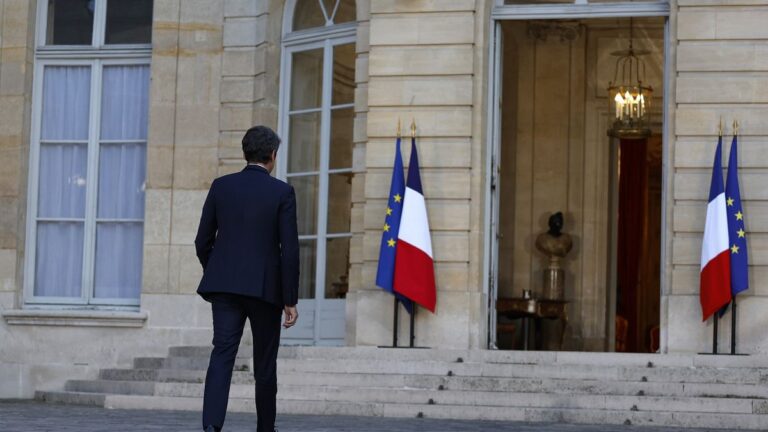France’s parliamentary elections have left the political landscape divided: the unexpected victory of the left-wing New Popular Front has shifted the balance in the National Assembly and created economic uncertainty.
The second round of French parliamentary elections averted the rise of the far right, but no party won an absolute majority, leaving the political landscape divided and France vulnerable to economic uncertainty.
The left-wing New Popular Front’s unexpected victory, winning the most seats (182), tilted the balance in the National Assembly to the left.
The party’s leader, Jean-Luc Mélenchon, has asked President Emmanuel Macron to mandate the formation of a new government, but Macron has asked current Prime Minister Gabriel Attal to stay on in his position on an interim basis to ensure stability.
Following the New Popular Front, Macron’s centrist party won 161 seats, while the far-right National Rally won 142.
A divided parliament and possible policy deadlock pose significant risks to France’s economic stability and growth.
Financial experts are concerned about France’s ability to implement necessary reforms and maintain its sovereign rating, especially with its public debt-to-GDP ratio exceeding 110 percent and the European Union imposing excessive fiscal measures on Paris.
Risk of French sovereign downgrade rises
Pablo Zaragoza, head of European macro and rates at BBVA, said tail risks have subsided but medium-term fundamental headwinds remain. “The distribution of seats in parliament is balanced,” he said, highlighting the limited room for bold structural reforms and fiscal consolidation.
He stresses that it is uncertain what kind of government will emerge, especially given policy differences within the left.
Zaragoza also notes that France’s medium-term economic outlook remains weak. “This has direct implications not only for risks related to growth and the public debt supply-demand balance, but also for the outlook for France’s sovereign rating,” he explains. Slow progress on key reforms increases the likelihood of a downgrade of France’s sovereign rating.
BBVA chief strategist Roberto Cobo said markets had reacted positively to a hung parliament scenario over the past week, but warned that a left-wing government in power could widen fiscal imbalances, hurting the euro and widening yield gaps in France.
“Fiscal risks and political paralysis reduce the likelihood of meaningful action to address mounting debt,” Cobo said, raising the possibility of weaker growth. He also noted that it was unclear who Macron would choose as his next prime minister until the new composition of the National Assembly was decided.
Simon Fresennet, an interest rate strategist at Goldman Sachs, said the election results were consistent with short-term market relief because the new Congress is less extreme than expected.
However, he noted that big challenges lie ahead, especially in forming a government.
“With parliament in limbo, France will be left with few avenues to address its structural problems and restructure its debt,” Fresnes said, suggesting that political instability remains a strong possibility, especially if the New Popular Front tries to implement expansionary fiscal measures.
Budget risks are more likely to get worse than improve
Fresennet added that even if political gridlock were to limit budget risks, they would likely get worse rather than better, and stressed that in a politically uncertain environment, favorable market conditions cannot be guaranteed.
Philippe Redan, senior economist at ING, recalls that the publication of the New Popular Front’s radical platform had previously caused instability in bond and stock markets.
“Today, the NFPs have won a victory, even if it is a relative one, and are insisting on implementing uncompromising policies,” Ledent wrote. He warned that if the rhetoric from NFP leaders does not change, market volatility could return, although policies are unlikely to be fully implemented.
Redant highlights two competing realities: the difficulty of French parties making concessions and the socio-economic challenges facing the country that require reforms backed by a broad coalition.
“Failure to reconcile these two realities could ultimately lead to persistent instability that unsettles markets,” he concludes.


